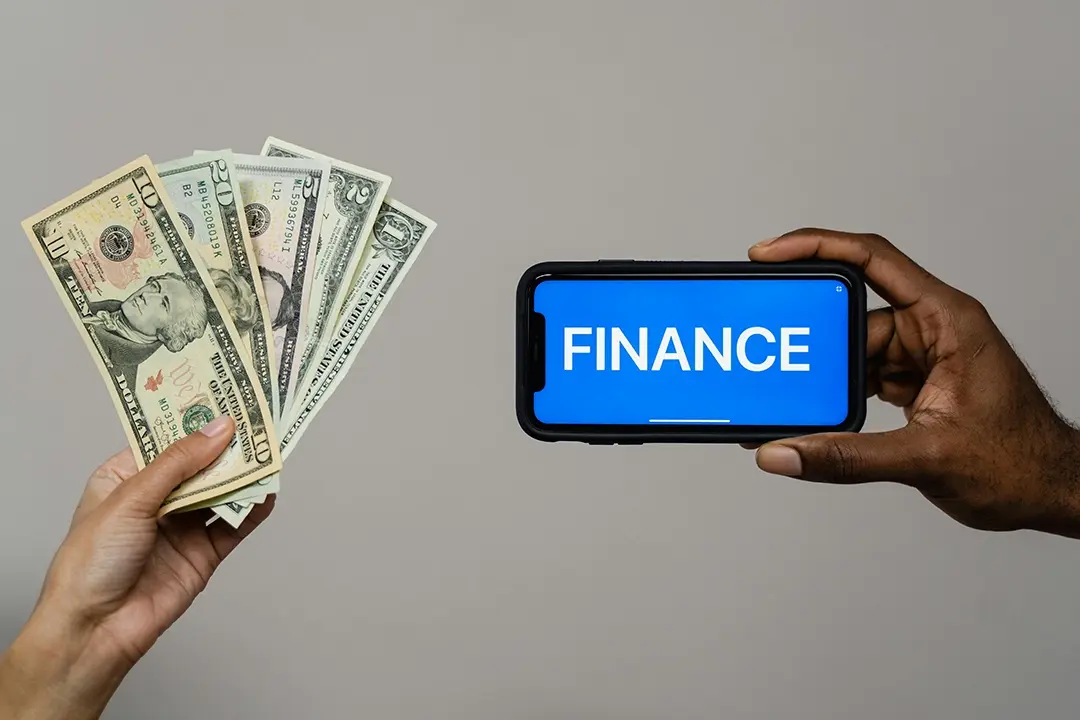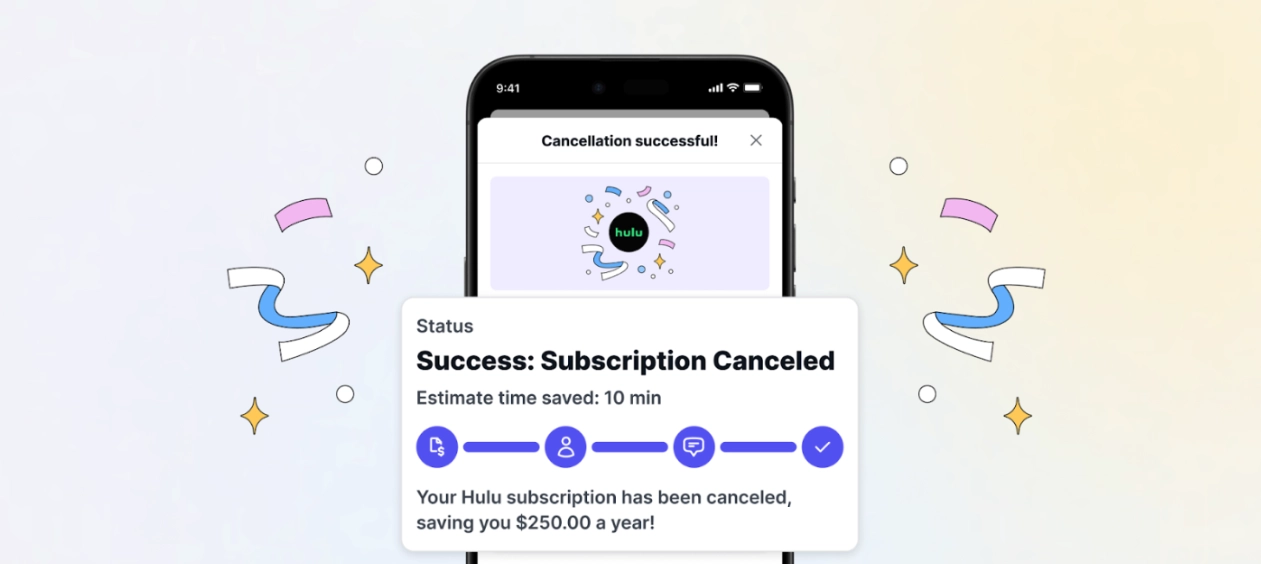
Kudos has partnered with CardRatings and Red Ventures for our coverage of credit card products. Kudos, CardRatings, and Red Ventures may receive a commission from card issuers. Kudos may receive commission from card issuers. Some of the card offers that appear on Kudos are from advertisers and may impact how and where card products appear on the site. Kudos tries to include as many card companies and offers as we are aware of, including offers from issuers that don't pay us, but we may not cover all card companies or all available card offers. You don't have to use our links, but we're grateful when you do!
Does a Negative Balance Affect Your Credit Score?
July 1, 2025


Quick Answers
A negative balance on your credit card, typically from a refund or overpayment, does not negatively affect your credit score.
Credit bureaus generally report a negative balance as a zero balance, which can positively influence your credit utilization ratio.
You can either request a refund check from your card issuer for the overpaid amount or simply let the credit apply to future purchases.
What Is a Negative Balance?
A negative balance on a credit account occurs when the amount owed drops below zero. This can happen if you receive a refund for a purchase that is greater than your current statement balance. In simple terms, this means the credit issuer owes you money, which will be reflected as a credit on your account.
While a negative balance is noted on your credit report, it does not typically influence your credit score directly. Credit scoring models are more focused on factors like payment history, credit utilization, and length of credit history. Therefore, having a credit balance is a neutral event in terms of its impact on your score.
How a Negative Balance Can Affect Your Credit Score
Seeing a negative balance on your credit card statement might seem alarming, but it typically doesn't hurt your credit score. In fact, it simply means the card issuer owes you money.
- A Negative Balance Appears: A refund or overpayment leaves you with a credit on your account. Since you don't owe anything, your credit utilization for that card is effectively zero, which is generally good for your score.
- The Account Goes Dormant: With no balance to pay off, you might stop using the card. If this inactivity continues for several months or longer, the issuer may take notice.
- Risk of Account Closure: Credit card companies sometimes close accounts due to prolonged inactivity to manage their risk and costs. A dormant account, even one with a negative balance, can be a candidate for closure.
- Potential Credit Score Damage: If the issuer closes the account, it can impact your score by reducing your total available credit—which can raise your overall credit utilization ratio—and potentially lowering the average age of your credit history.
How Much Will a Negative Balance Affect Your Credit Score?
The exact impact of a negative balance on your credit score depends on several factors. Here are the key things to consider:
- Credit Utilization Ratio. A negative balance increases your credit utilization, which is the amount of credit you're using versus your limit. A higher ratio can lower your score as it suggests greater financial risk.
- Payment History. If the negative balance is from a missed payment, it will be reported to credit bureaus. This directly harms your payment history, the most important factor in your credit score.
- The Amount and Duration. Larger negative balances and those that remain unpaid for longer periods will have a more severe impact. Lenders view prolonged debt as a significant indicator of financial instability.
How You Can Avoid a Negative Balance Affecting Your Credit Score
Set Up Account Alerts
Most banks let you create low-balance or large-transaction alerts. This proactive step keeps you informed about your account's status, helping you avoid overdrafts that could lead to a negative balance and collections activity that would impact your credit report.
Use Overdraft Protection
Linking your checking account to a savings account or a line of credit for overdraft protection acts as a safety net. If a transaction exceeds your balance, funds are automatically transferred, preventing your account from going into the red and incurring fees.
Ways to Improve Your Credit Score
Improving your credit score is an achievable goal that can significantly impact your financial health. With consistent effort and the right strategies, you can see meaningful changes over time, often within just a few months.
- Establish automatic bill payments. Your payment history is the most significant factor in your score, and setting up automatic payments is a simple way to ensure you never miss a due date.
- Reduce your credit utilization ratio. Aim to keep your total balance below 30% of your available credit, as this shows lenders you aren't over-reliant on debt.
- Monitor your credit reports. Regularly check your reports from all three major bureaus—Experian, TransUnion, and Equifax—to catch and dispute any inaccuracies or signs of fraud.
- Become an authorized user. Being added to a credit card account of someone with a strong payment history can help boost your own score, provided the account is in good standing.
- Limit hard inquiries. Avoid applying for too much new credit at once, as multiple hard inquiries in a short period can temporarily lower your score.
- Diversify your credit mix. Lenders like to see that you can responsibly manage different types of credit, such as credit cards and installment loans like auto or credit-builder loans.
The Bottom Line
A negative credit card balance, typically from a refund or overpayment, won't harm your credit score. While not a credit-building strategy, it simply indicates the issuer owes you a refund.
Frequently Asked Questions
How long does a negative balance stay on my credit report?
A negative balance, once reported as a delinquency or charge-off, can remain on your credit report for up to seven years from the original delinquency date.
Will paying off a negative balance immediately remove it from my credit report?
No, paying it off won't remove it. The account status will be updated to "paid," but the history of the negative balance will still remain for seven years.
Does a small negative balance hurt my credit score as much as a large one?
While any negative balance is damaging, scoring models often weigh larger amounts more heavily. However, even a small negative balance can significantly lower your credit score.
Unlock your extra benefits when you become a Kudos member

Turn your online shopping into even more rewards

Join over 400,000 members simplifying their finances

Editorial Disclosure: Opinions expressed here are those of Kudos alone, not those of any bank, credit card issuer, hotel, airline, or other entity. This content has not been reviewed, approved or otherwise endorsed by any of the entities included within the post.



































.webp)

.webp)






